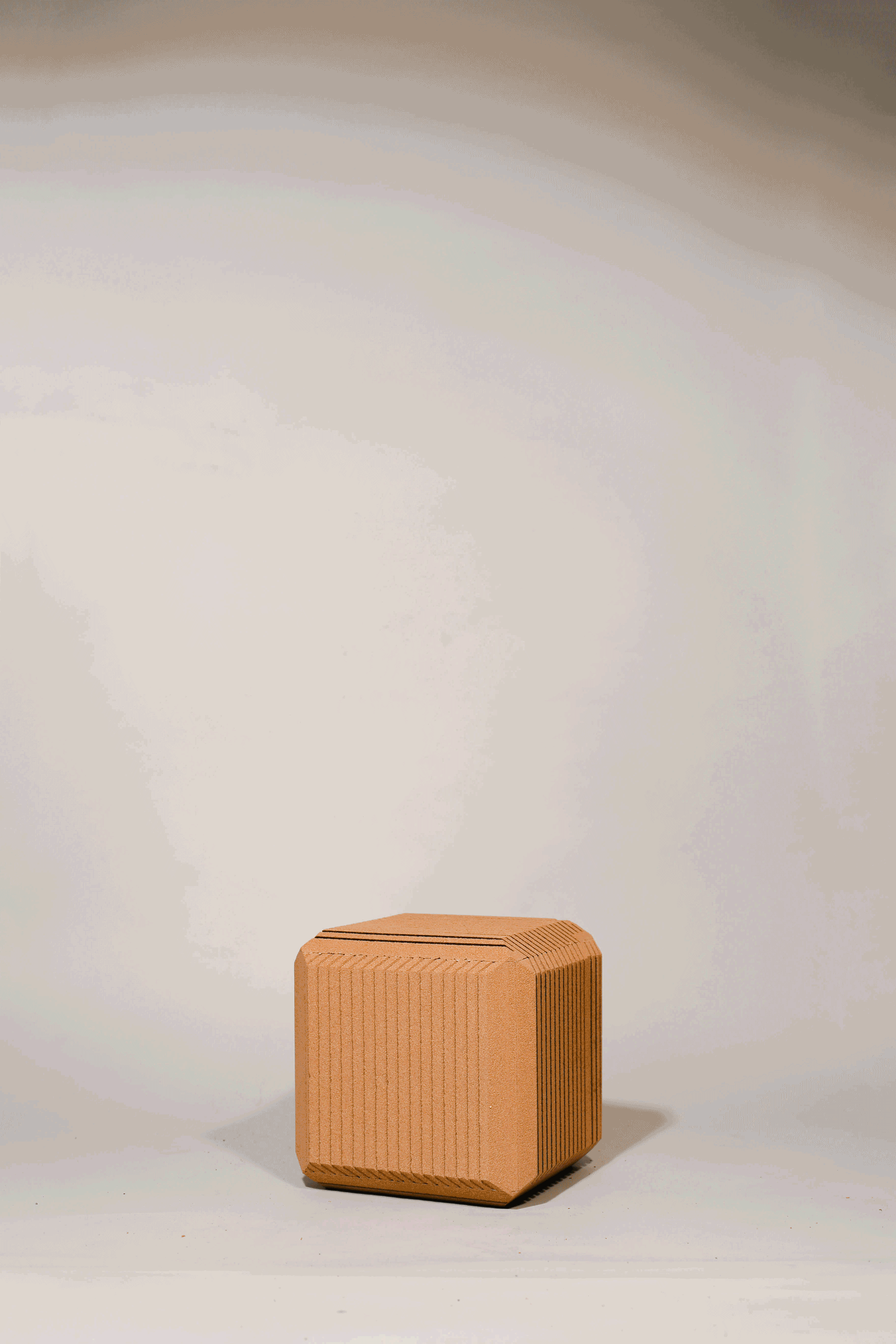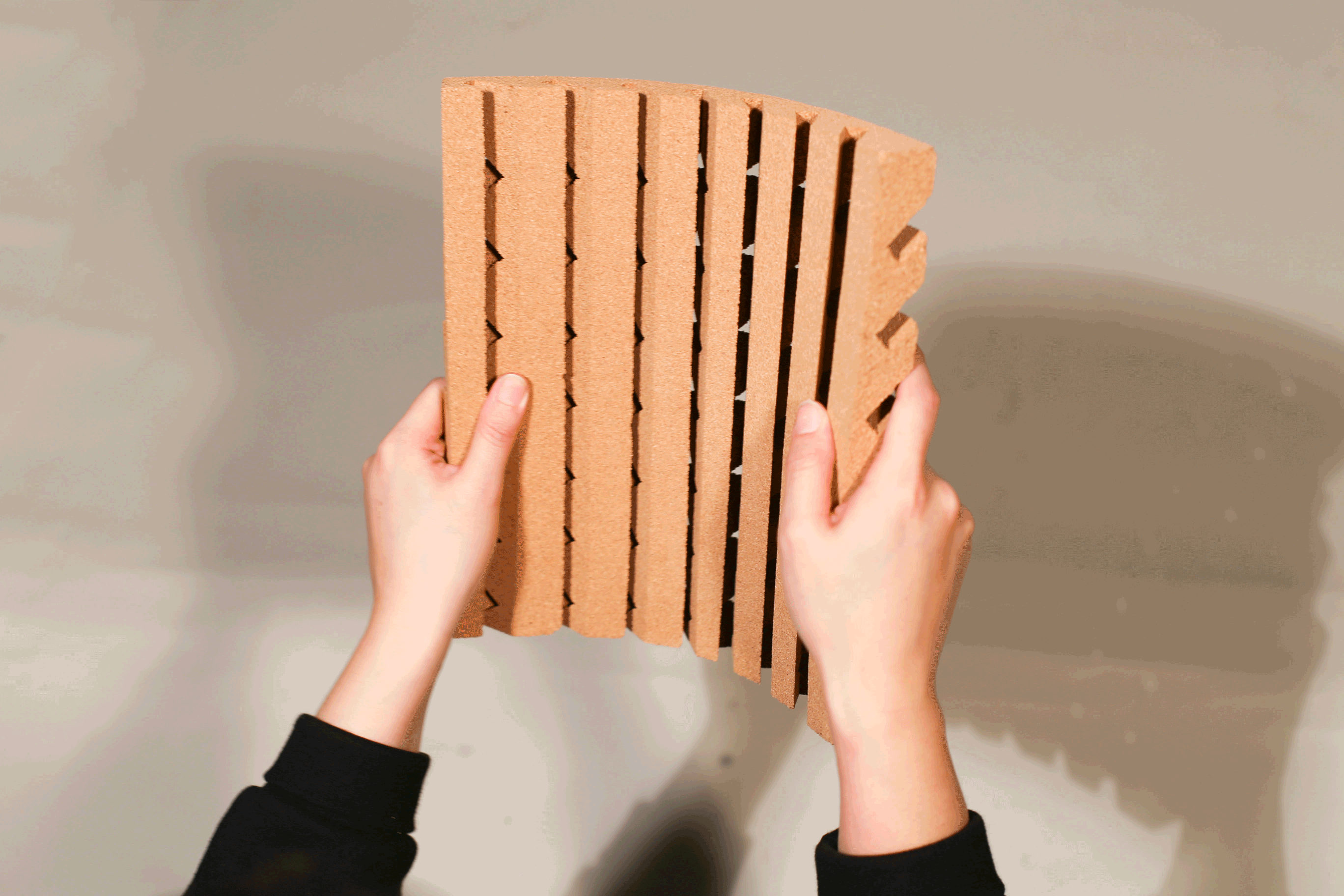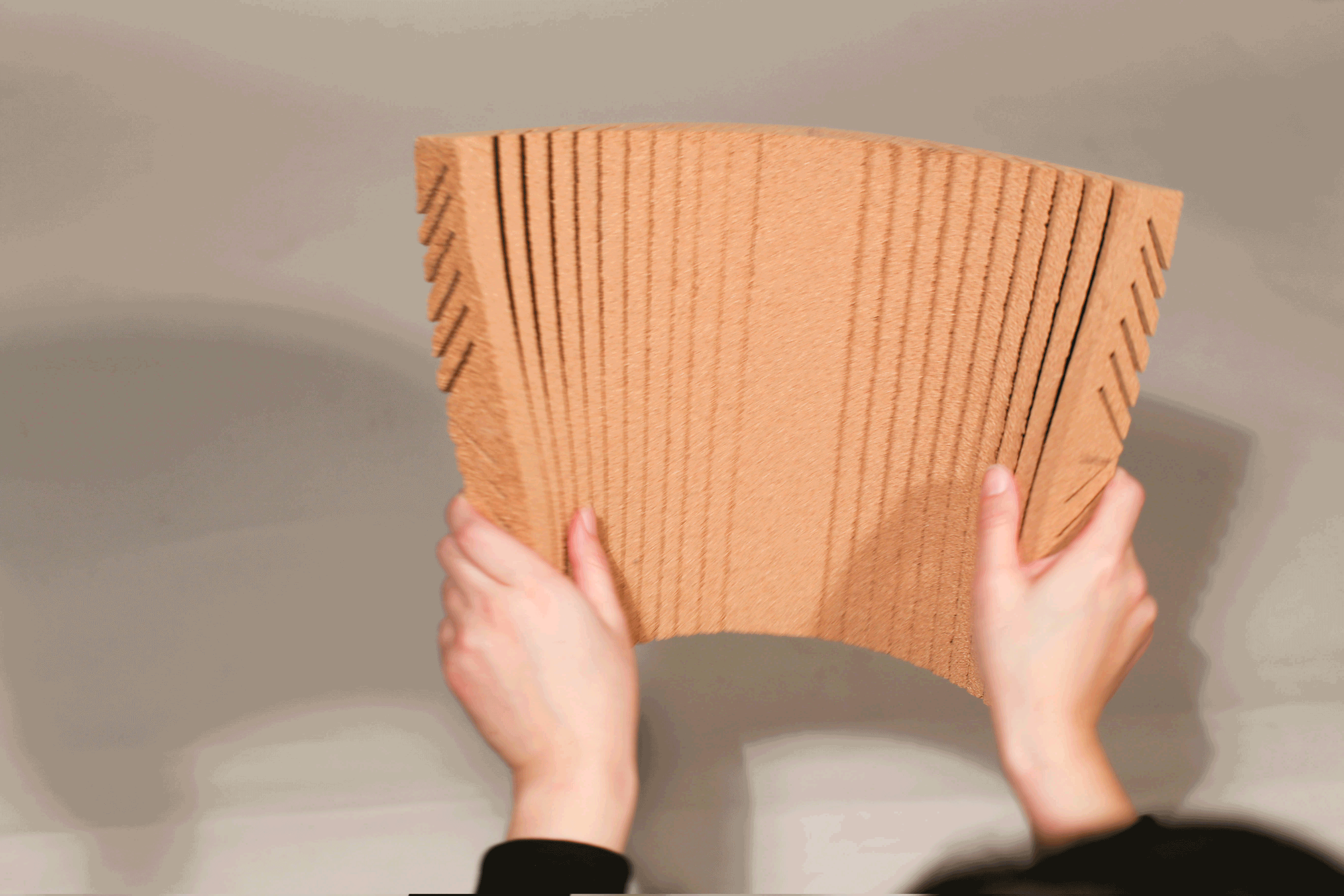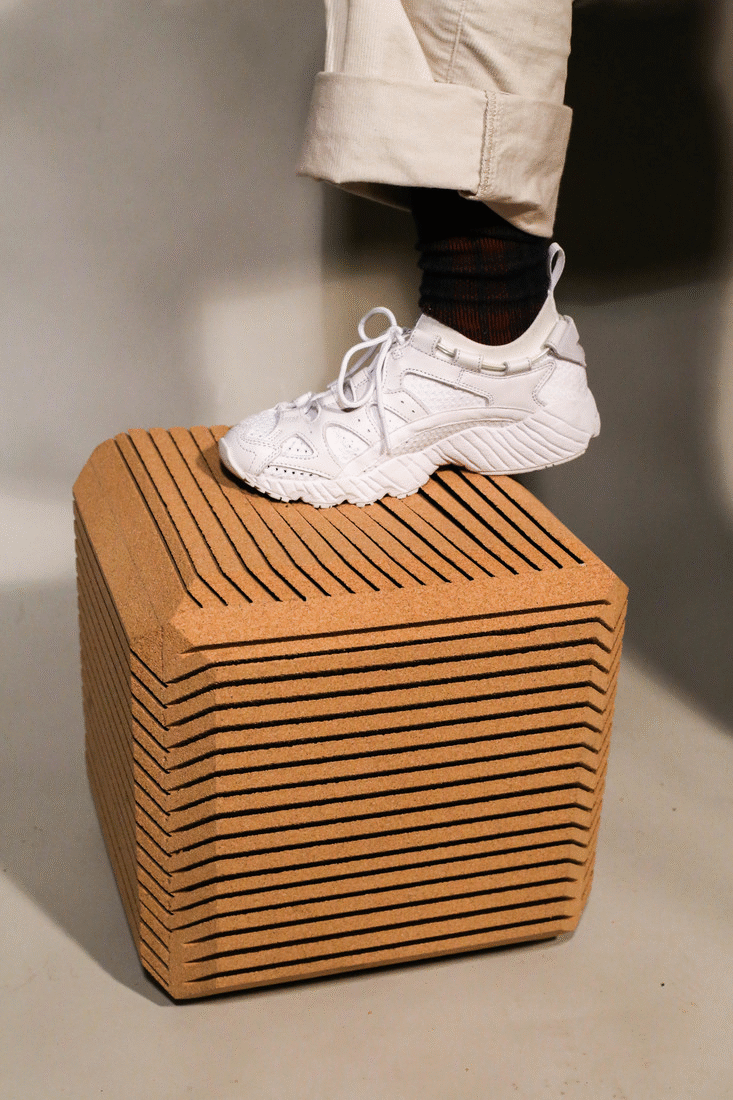


All about cork
This project focused on material-based investigations using cork from Portugal as the source material.
This class was one of three classes working together with RISD Global's Portugal Initiative. Along with experimenting with the material, we had to think about what is "Contemporary Ornamentation" and how cork fits into that category.
Jiggle Box
Ornamentation is usually defined as a qualitative property that is there just for visual purposes, however, in contemporary ornamentation the visual quality is what adds its functional qualities.
The repetitive cuts created a pattern on the cork changing it visually, ornamenting the material but it is also that ornamentation (pattern) that made it extremely flexible and compress when you put weight on it.
The cube form makes the functional purpose of the object ambiguous, forcing the audience to interact and touch the material to discover that it reacts to weight and touch. The Jiggle Box can be stood on, sat on, hugged, pressed and more.














Primary Experimentation & Investigation
During my experimentation I tried cutting the cork on the table saw to create different patterns and cuts and found that depending on the pattern of the cut it changes the nature of the material.
Depending on the depth, direction, spacing of the cuts it makes it softer. Cork is already naturally soft and quite flexible but with the additional cuts it can make it extremely flexible.



Secondary Experimentation & Investigation
Through the earlier experimentations, I found that when you cut the cork in two directions (one X and one Y) diagonally on both surfaces of the cork, it makes it extremely flexible and squishy. When it is static it looks rigid but once you touch it, bend it, press it, it activates the cork. I was excited about this discovery and was most satisfied with the interaction you receive from it.
With this new discovery, I moved on to designing the appropriate application for this finding. The aim was to create an object that needs to be interacted with so that the user could 'activate' the property of the cork.

cork!

A.
diagonal cuts on top side


B.
diagonal cut on bottom side also but opposite direction
Possible
Applications:



Floor mat
feeling with your feet, cork squishes when stepped on giving a satisfying feeling on the foot.



Lounge chair
treating cork like upholstery, the cork conforms to your body weight and shape and acts like
a cushion.



Seating
a different kind of seating, more of a stool to keep the function more open and flexible, not strictly a chair but still requires physical interaction and touch.
Refining & Testing:
In the end after many trial and error, I decided to use the jiggly, squishy cork and apply it to the third option - a box.
After a lot of refinement and testing to make sure the box was structural enough and suitable for seating. I had to test a lot with the cutting of the cork to determine how soft or how hard the cork should feel when you put weight on it.
static


push weight down

Different iterations of the structure and size of cork box

So much cork dust!






Full scale production process











'Portugal Initiative' Exhibition
This project was part of an exhibition by RISD Global titled 'Portugal Initiative'. Three classes from Industrial Design, Interior Architecture and Architecture all experimented on cork from Portugal and showcased various projects experimenting with the material.
Projects were showcased in the Sol Kofler Gallery in RISD's CIT building (December 2018).





The Jiggle Box was featured on Interior Design: Home Magazine (March 21, 2021 Issue)


Thank you for viewing :)